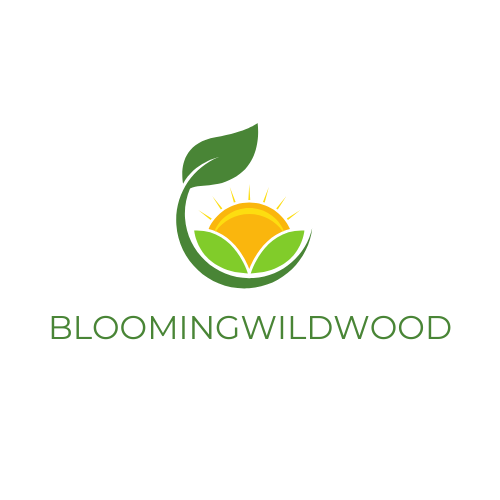High blood pressure can feel like that annoying friend who just won’t leave the party. It sneaks up on you, bringing stress and a whole host of health concerns. But what if there were natural ways to tell that pesky friend to take a hike? Enter herbal remedies, nature’s own little superheroes, ready to swoop in and save the day.
Herbal Remedies for High Blood Pressure
High blood pressure, known as hypertension, affects millions globally. This condition leads to numerous health problems, including heart disease, stroke, and kidney failure. Blood pressure is the force of blood pushing against artery walls. When this pressure remains elevated, it can cause significant damage over time.
Causes of high blood pressure vary. Factors like obesity, lack of physical activity, and excessive salt intake contribute to its development. Stress also plays a role, influencing behaviors that further exacerbate hypertension.
Symptoms may not be apparent initially. Many individuals live with high blood pressure without realizing it. Regular monitoring becomes essential for early detection. Healthcare professionals recommend checking blood pressure frequently, especially for those with risk factors.
Complications that arise from untreated high blood pressure can be severe. Heart attacks, aneurysms, and metabolic syndrome are common consequences. Lifestyle changes, including diet and exercise, serve as primary management strategies.
Dietary adjustments focus on reducing sodium intake and incorporating potassium-rich foods. Foods like bananas, spinach, and sweet potatoes improve blood pressure control. Herbal remedies also present promising alternatives in managing hypertension. Ingredients such as garlic, hibiscus, and cinnamon show potential for lowering blood pressure naturally.
Treatment options vary widely. Medications prescribed by doctors may include diuretics and ACE inhibitors. These pharmaceuticals often accompany lifestyle modifications for effective management. Testing new herbal remedies, under a physician’s guidance, could enhance overall health while addressing hypertension directly.
Common Causes of High Blood Pressure

High blood pressure results from various factors, both lifestyle-related and genetic. Understanding these causes plays a crucial role in managing hypertension effectively.
Lifestyle Factors
Sedentary lifestyles contribute significantly to high blood pressure. People who lack physical activity often experience weight gain, increasing their risk. Diets high in sodium and unhealthy fats raise blood pressure levels as well. Stressful situations frequently lead to spikes in blood pressure, compounded by unhealthy coping mechanisms like smoking or excessive alcohol consumption. Regular exercise, balanced diets rich in potassium, and stress management techniques help mitigate these risks effectively.
Genetic Factors
Family history plays a major role in hypertension. Individuals with parents or siblings diagnosed with high blood pressure face a higher likelihood of developing the condition themselves. Certain genetic traits affect how the body processes sodium and manages blood vessel tone. Racial background also influences risk factors, with certain groups predisposed to hypertension. Awareness of these genetic risks aids in taking proactive steps for health, including regular check-ups and lifestyle adjustments.
Herbal Remedies for High Blood Pressure
Herbal remedies provide a natural method for managing high blood pressure. Many individuals seek these alternatives to support heart health and promote well-being.
Popular Herbs and Their Benefits
Garlic exhibits strong antihypertensive properties. Studies indicate that garlic consumption can reduce systolic and diastolic blood pressure. Hibiscus serves as another effective option; research shows it lowers blood pressure in individuals with mild hypertension. Cinnamon, known for its flavor, also has benefits; it enhances blood circulation and may reduce blood pressure levels. Other herbs like ginger, basil, and turmeric support cardiovascular health and contribute to overall wellness.
How Herbal Remedies Work
Herbal remedies function through various biochemical mechanisms. Some herbs dilate blood vessels, improving blood flow and reducing resistance. Others possess anti-inflammatory properties, addressing underlying conditions contributing to hypertension. Antioxidants in certain herbs combat oxidative stress, which can damage blood vessels. By incorporating these herbs into daily diets, individuals may experience significant improvements in their blood pressure levels over time.
Safety and Precautions
Using herbal remedies for high blood pressure requires careful consideration. Awareness of potential side effects and interactions with medications is essential.
Potential Side Effects
Some herbal remedies may cause side effects. Garlic might lead to gastrointestinal issues in some individuals. Hibiscus can result in headaches or stomach upset. Cinnamon, while beneficial, may cause allergic reactions in sensitive individuals. Monitoring for adverse reactions is important, especially when starting new herbs. Gradual introduction allows the body to adapt, minimizing discomfort. Reporting any unusual symptoms to a healthcare provider enhances safety.
Interactions with Medications
Interactions between herbal remedies and medications pose risks. Garlic can amplify the effects of blood-thinning medications, increasing bleeding risk. Hibiscus may lower blood pressure excessively when combined with antihypertensive drugs. Cinnamon might interfere with glucose-lowering medications, complicating diabetes management. Communicating with healthcare professionals before incorporating herbal supplements into a treatment plan is crucial. A thorough review of current medications ensures safe use of herbal alternatives. Engaging in open dialogue with a doctor helps prevent adverse interactions.
Embracing a Holistic Lifestyle
Herbal remedies offer a promising avenue for managing high blood pressure naturally. By incorporating herbs like garlic, hibiscus, and cinnamon into daily routines, individuals may find effective support for their cardiovascular health. However, it’s essential to approach these remedies with caution and awareness of potential interactions with medications. Regular communication with healthcare professionals will ensure a safe and informed approach to using herbal solutions alongside traditional treatments. Embracing a holistic lifestyle that includes dietary changes and exercise can further enhance the benefits of these natural remedies, promoting overall well-being and better blood pressure management.

